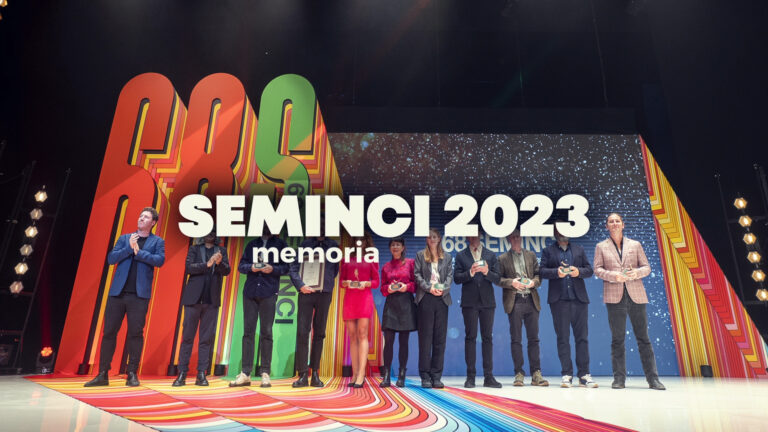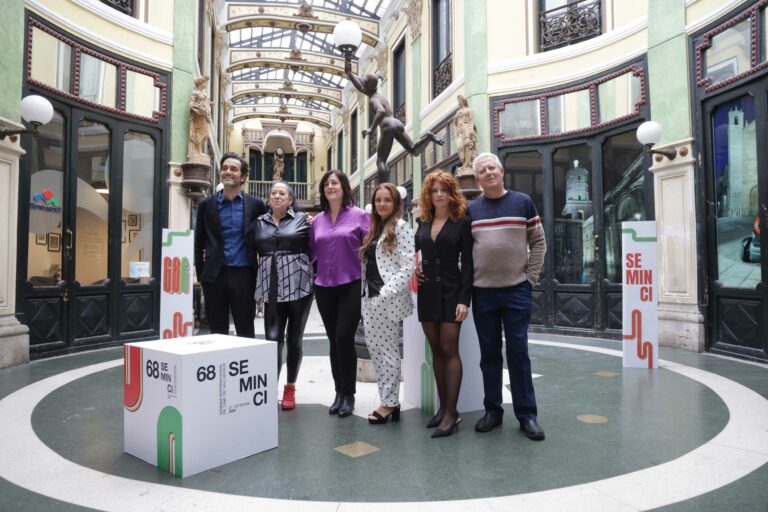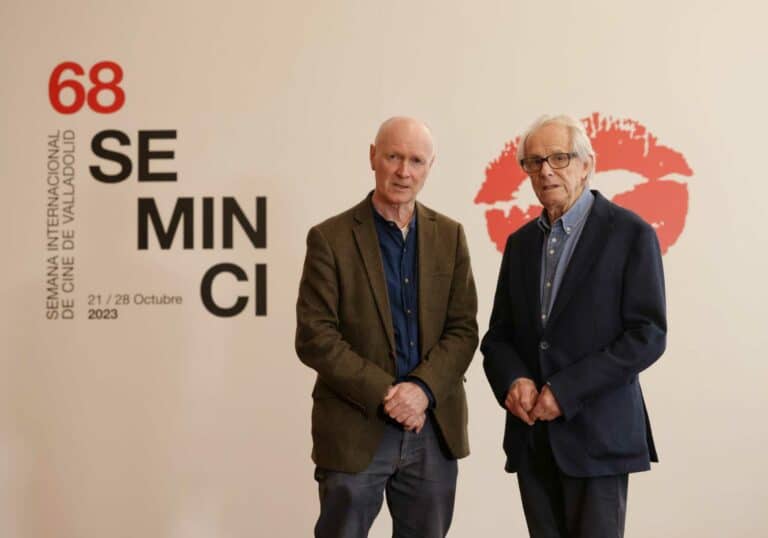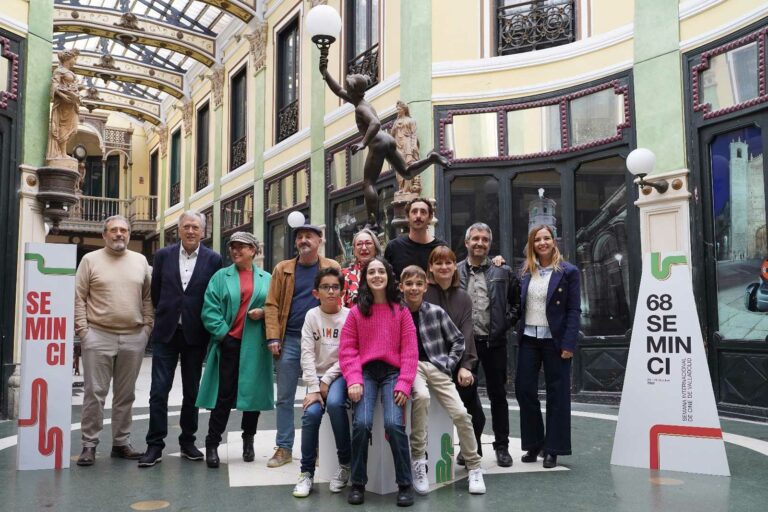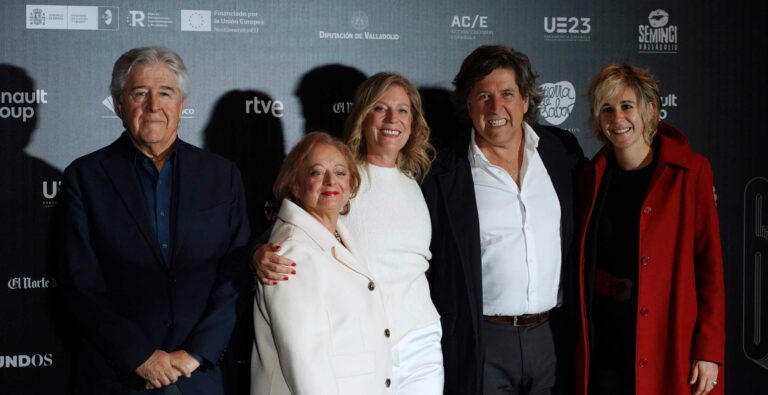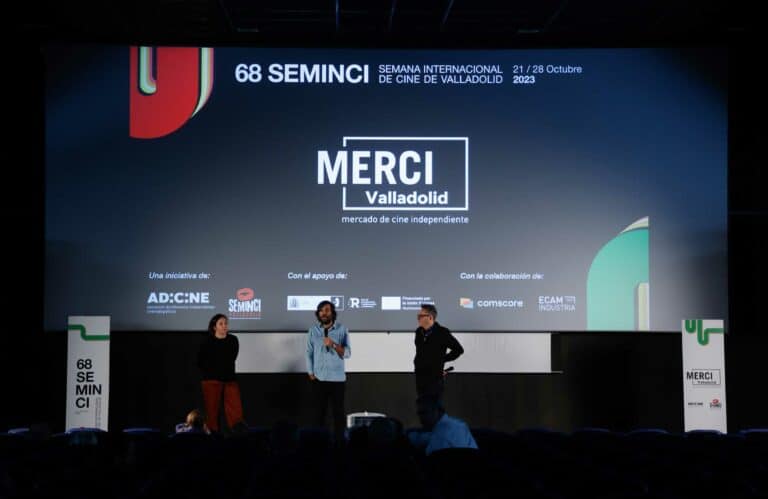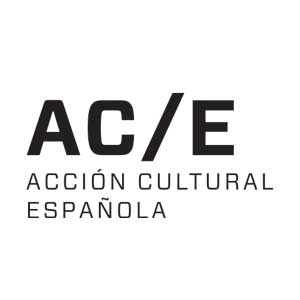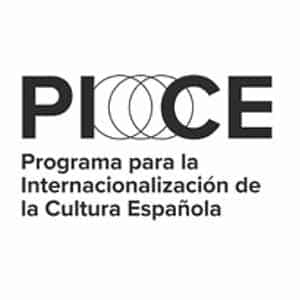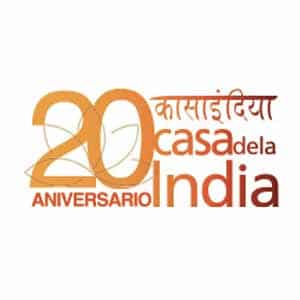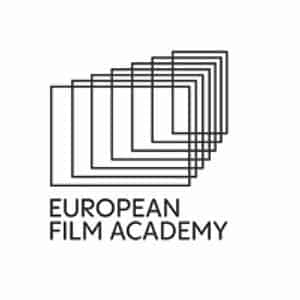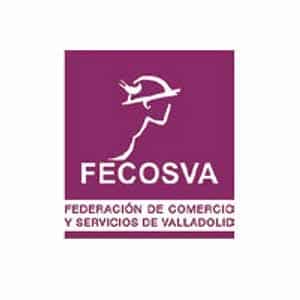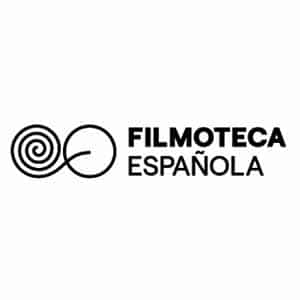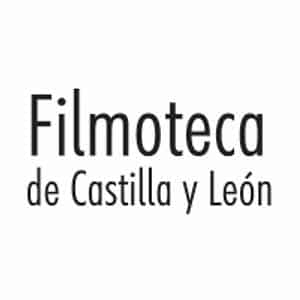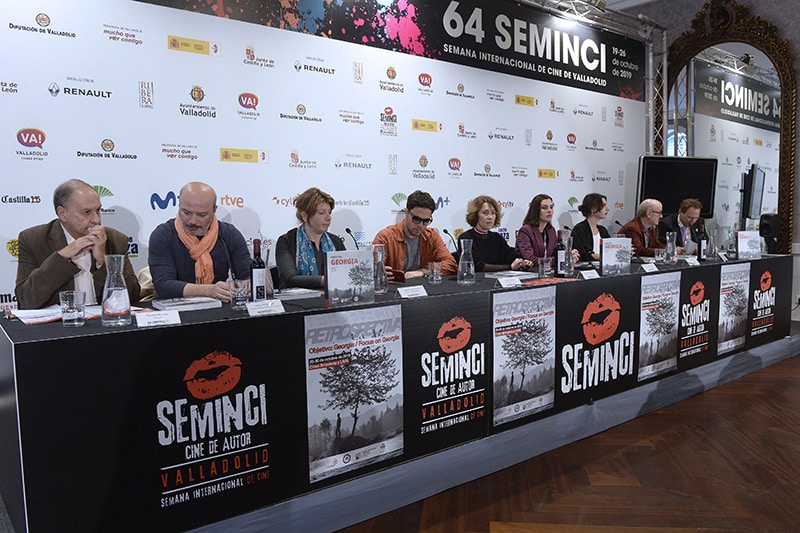
24/10/2019.- On Georgia day, the 64 International Film Week of Valladolid held a round table dedicated to “getting to know the identity and the values of a cinematography which is unjustly unknown in Spain,” as Javier Angulo, the director of the festival said.
Ana Chkonia (head of international relations at the Georgian National Film Center), Gvantsa Zakareishvili (head of public relations at the Georgian National Film Center), Tinatin Kajrishvili (director of feature films such as Horizon and Brides), Lasha Khalvashi (producer of film titles such as Horizon, Brides and Scary Mother), Tornike Bziava (director of short-film The April Chil) and Keti Machavariani (filmmaker and member of the International Jury) took part in the session, as well as Fernando Lara as moderator.
Lara explained that in the last years, a cinematography blooming has occurred at different spots in the world, among which are Georgian cinema, which also justifies the retrospective Seminci dedicated it with the programming of 16 feature films and one short film made since 2010 up to now. “Today is the culmination with the projection of My Grandmother, a gem of Georgian silent films which will be watched with the film’s music live,” explained the Week’s director for 20 years.
As an anecdote, the filmmaker Tornike Bziava shared that his grandfather as a co-scriptwriter in this old film. The relationship between the directors and producers present is much less casual, with the new wave of Georgian cinema, which started forming under the auspices of the Georgian National Film Center (GNFC), the equivalent of the ICAA in Spain, founded only a decade ago and which created funds to back cinematographic initiatives in the country.
A 2.5 million budget
“The institute’s objective is to allocate government funds to auteur projects,” Ana Chkonia explained. From 2000, the body has given financial support to 140 essentially national films, although sometimes they are coproductions with other countries. One of its aims is to encourage the participation of films at festivals, to which it dedicates most of its funds, 2.5 million Euros per year.
The potential of commercial cinema in Georgia is limited. This country ended 2018 with 3,731,000 inhabitants and, according to Ana Chkonia, about 30 cinema screens in the whole national territory, “and they are all owned by the same person.” Another handicap, according to Tornike Bziava, is the language, since only the inhabitants of this country speak Georgian. With this situation, it is not surprising that only 7% of the films screened are from Georgia.
In turn, its reduced industry is a clan in which any director or producer may become the mentor of a young filmmaker who has problems accessing the two universities and the film school that offer cinematography studies. GFNC helps economically to the limit of its possibilities not only the producers in the country, but also the foreigners who shoot in Georgia.
As Chkonia has states, just for filming inside the country, the centre contributes an amount. “In the case of Da cven vicekvet (And then We Danced) –film included in the Official Section at Seminci-, it is a fundamentally Swedish production, but they received 25% of their budget from GFNC.”
Plural themes
Little by little, they go from post war topics to more plural plots. In the case of director Tinatin Kajrishvili, more intimist ones. “Something that has disappointed me a bit as a filmmaker is that it seemed like everyone was hoping I would make films on the post war period. Outside Georgia, it seems like this is the only kind of project they are interested in supporting. I am more interested in films about human relations, even if they have the post war period in the background,” she explained.
From government organizations there is total freedom of action, although the speakers admit that there is still a small way to go in some aspects from the point of view of social acceptance, such as homosexuality. “95% of the country is very religious and it is very difficult to address this topic, but from GFNC we are helping Da cven vicekvet, by Levan Akim, in its career towards the Oscar, as well as in its international trips,” Ana Chkonia explained.
Regarding the topic of if filmmakers have the freedom of addressing any topic from the point of view of social acceptance, Ket Machavariani used comparative historic references, and believes that there is a generational gap regarding this topic: “In the new generation we facing problems similar to those that Spain suffered 40 years ago. Not long ago, a close friend of mine premiered a film in Toronto, based on homosexuality, and it was financed by the National Film Center. Now there are two generations: on the one side, one that sympathises more with the Orthodox church and, on the other, younger people, who try to show that we are all the same. On the other hand, we are seeing the rise of the ultra right all over the world, including in Spain.”
To conclude, Fernando Lara summarised in two points the evolution of Georgian cinema up to now: “It is drifting towards intimism, while not losing tragicomedy as a characteristic feature in Georgian cinema.” A feature which is present in My grandmather, a film which was banned in Georgia during 50 years, and which helped filmmakers express themselves during Soviet times, when it was necessary to mask the message as a comedy.


